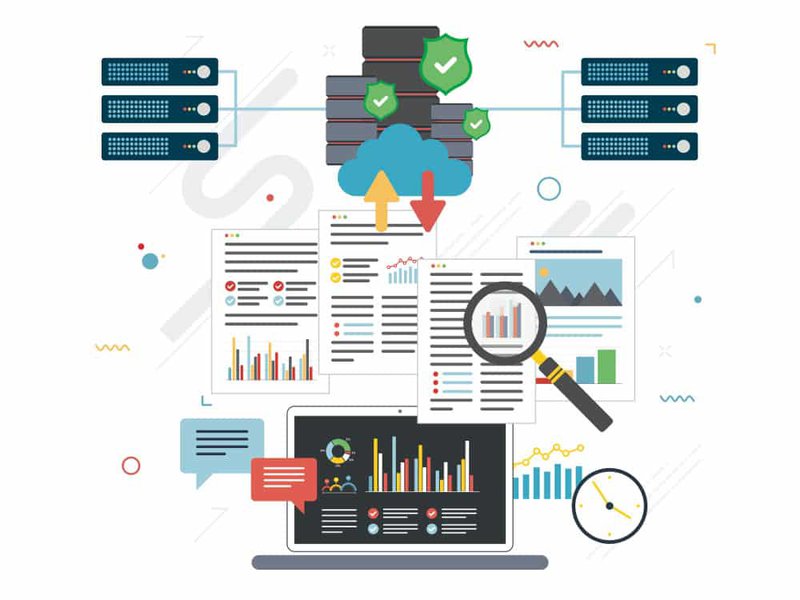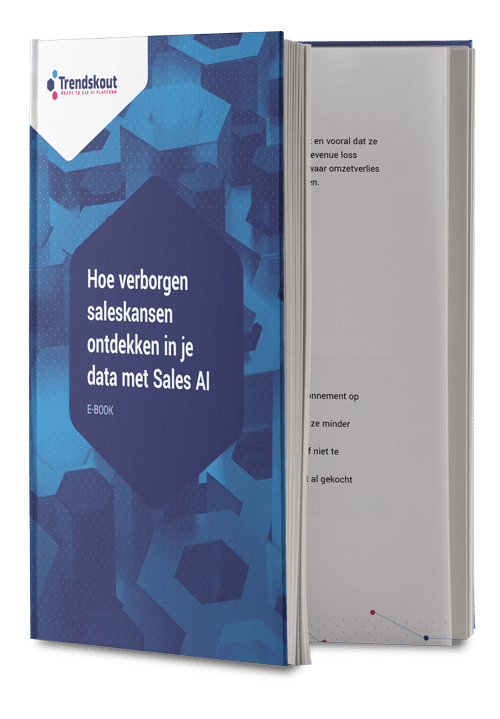
We collect customer information, financial elements, sales, materials and production data. In short, every detail relating to our business is collected and recorded. High-performance business solutions are required to be able to analyse and organise this data. In 2022, we can add another layer to these high-performance business solutions: for example, you can improve your ERP with artificial intelligence.
Let us go back in time
Enterprise Resource Planning (ERP) uses software to manage key business processes such as Human Resource Management, Order to Cash, Source to Pay, Record to Report, Lease management, Budgeting, Planning and Forecasting. The data and workflows related to these business processes are stored in ERP databases that are maintained by a dedicated team.
ERP has come a long way since its first use in the 1990s. One of the most significant changes was when companies were able to Introducing ERP with real-time functions. Data entered into the system would automatically update the database. The reports that were produced to provide key business statistics would also be sent to you immediately.
Today, we are witnessing major changes in digital technology. Artificial Intelligence and Machine Learning produce results that not long ago would have been impossible to imagine. Companies not only get real-time analytics, but it is now possible to deploy autonomous solutions that work intelligently.
Let's look at 7 ways we are improving your ERP with artificial intelligence and machine learning.
1. Customer service and sales automation
A common goal of most companies is to improve customer satisfaction. Artificial intelligence is now being used to improve the customer experience. Life has become a lot easier thanks to AI. It is used to help employees with, for example, a optimal time planning.
AI sales automation takes the day-to-day tasks off the hands of humans, allowing salespeople to focus more on customer needs and, again, generally making life easier. Take HP and Amazon, for example. When your HP printer runs out of ink, a message is immediately sent to Amazon to deliver new cartridges.
Read more on the changes in the B2B sector through data analytics.
2. Communication between departments
An ERP receives data from every department in a company. A perfect case of improving your ERP with artificial intelligence is the matching of supply and demand. Your database will contain the materials you have in stock and the orders you receive from customers. It will automatically calculate which materials to order and the quantities based on your existing or forecast orders.
Doesn't that sound great? By analysing trends in the business, AI already knows if you are about to reach a peak period and will predict, based on the results of previous years, what the business needs in order to be ready for the peak.
Few inter-departmental meetings will be needed to ensure that everyone is on the same wavelength. Staff will have access to the same information in real time. While this data is in the hands of machines rather than people, there is much less room for error.
3. Advanced analysis
Advanced analytics in ERP includes both data and machine learning models. Gigantic amounts of data are now being used to analyse customer buying patterns, predict changes in demand, optimise pricing, prevent churn, improve the determine next best action and marketing strategies, to name a few.
Advanced analytics is used not only to examine the past and the future, but also to record information about the present and provide companies with the best information for implementing optimal decisions.

Using advanced analytics, you can see how long customers spend viewing a particular product in your online shop and send customised emails based on what the customer likes from your ERP or an integrated Customer Relationship Management (CRM) system.
AI and machine learning have fundamentally changed the way an organisation manages its relationship with its people. Machine learning models can predict and anticipate staff turnover. The same technology can also be used to identify behaviour that motivates staff.
4. Predicting errors and even fraud
When an ERP stops functioning, the production of a company can be slowed down or even stopped completely. Traditionally, one would have to wait for an IT specialist to find the problem. Machine Learning can be used to identify the problem quickly. It can also predict potential problems and thus ensure continuous uptime of the ERP system.

Machine Learning is able to consume operational data of a company over a period of time and Predict customer orders that could be fraudulent. As computers are much faster in the detection of anomaliesTogether with the reduced number of errors, this could save companies large amounts of money, especially as the number of fraud cases is increasing.
5. Improving productivity
An ERP has details of every process in your organisation. AI will be able to look at each process and identify the ones that are not efficient. This can be at any or all parts of a process, from production to invoicing or shipping.
Companies can learn which process increases energy consumption, which stage produces the most damaged goods, which stage produces the most material waste, and which step adds the most value from a customer perspective.
When a company can see which areas limit productivity, team members are able to find solutions that benefit all parties involved.
6. Cloud ERP
Cloud ERP is a way of running your Enterprise Resource Planning over the Internet. It's a great way for small to medium-sized businesses to save on initial IT infrastructure and maintenance costs.
Cloud-based ERP, AI and Machine Learning solutions will further drive the adoption of ERP solutions, including automated billing solutions using image processing or speech recognition capabilities. It will also enable additional data collection using Internet of Things (IoT) technologies.
7. Peace of mind
While this may not seem as important as the previous six points, your peace of mind is equally important. Running a business, no matter the size, is hard work and there are several things you are responsible for. Data analysis plays a crucial role in your business. You no longer need to rely on reports collected by different employees and then have to interpret each one.
While this area is left in the capable hands of AI, machine learning and your ERP, you are able to focus on the core areas of your business. And ultimately add the learnings to the improved productivity of your business.

Trend Skout + your ERP = Bull's eye
Our experienced development team easily establishes connections with a wide range of ERP, CRM or database applications. Trendskout is built with an API architecture, which also makes calling up external applications easy.
Wondering what Trendskout can do for your company? Then book a demo quickly. A demo takes about half an hour. That's enough to show how well our platform can perform on your own dataset.

